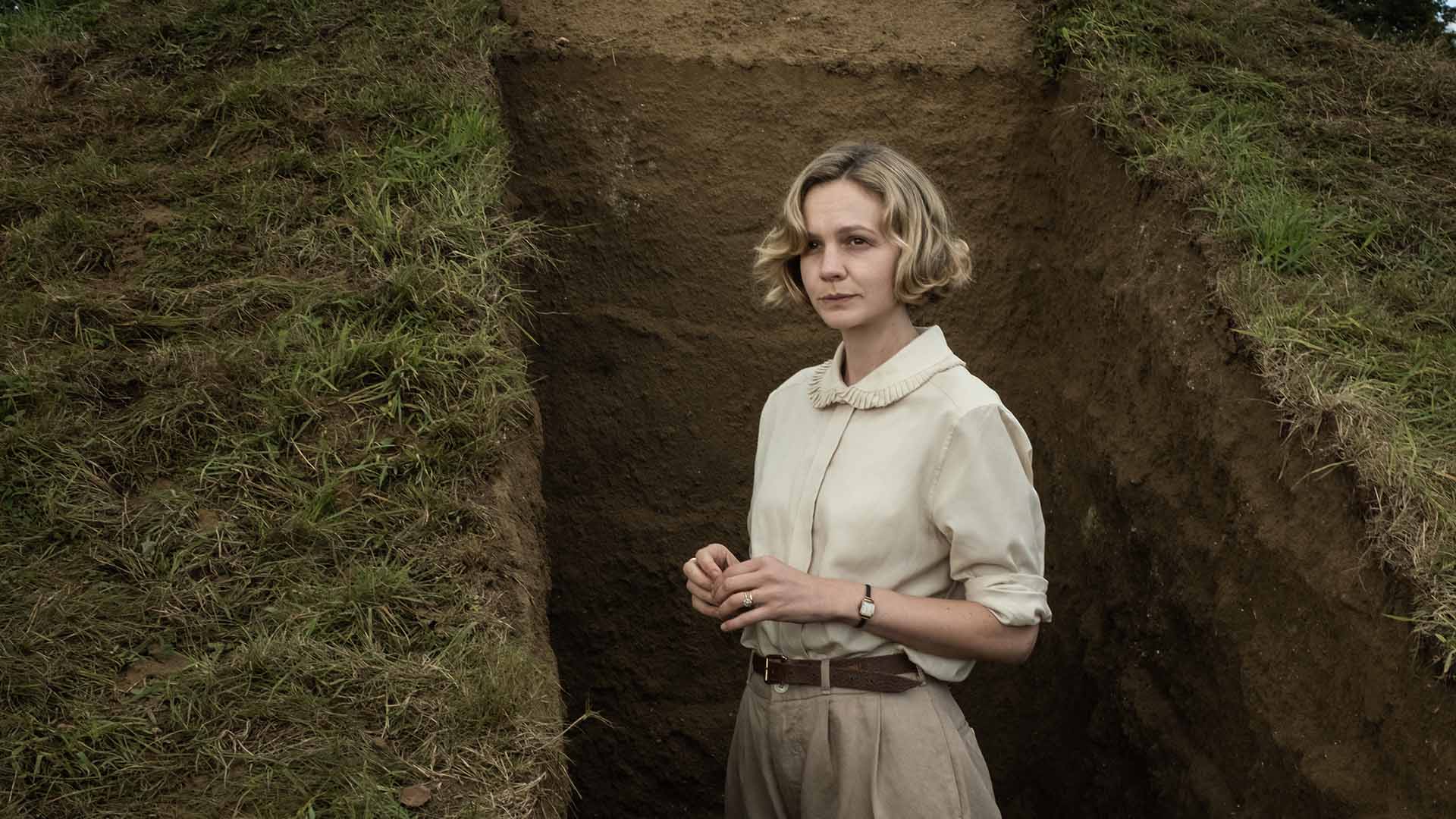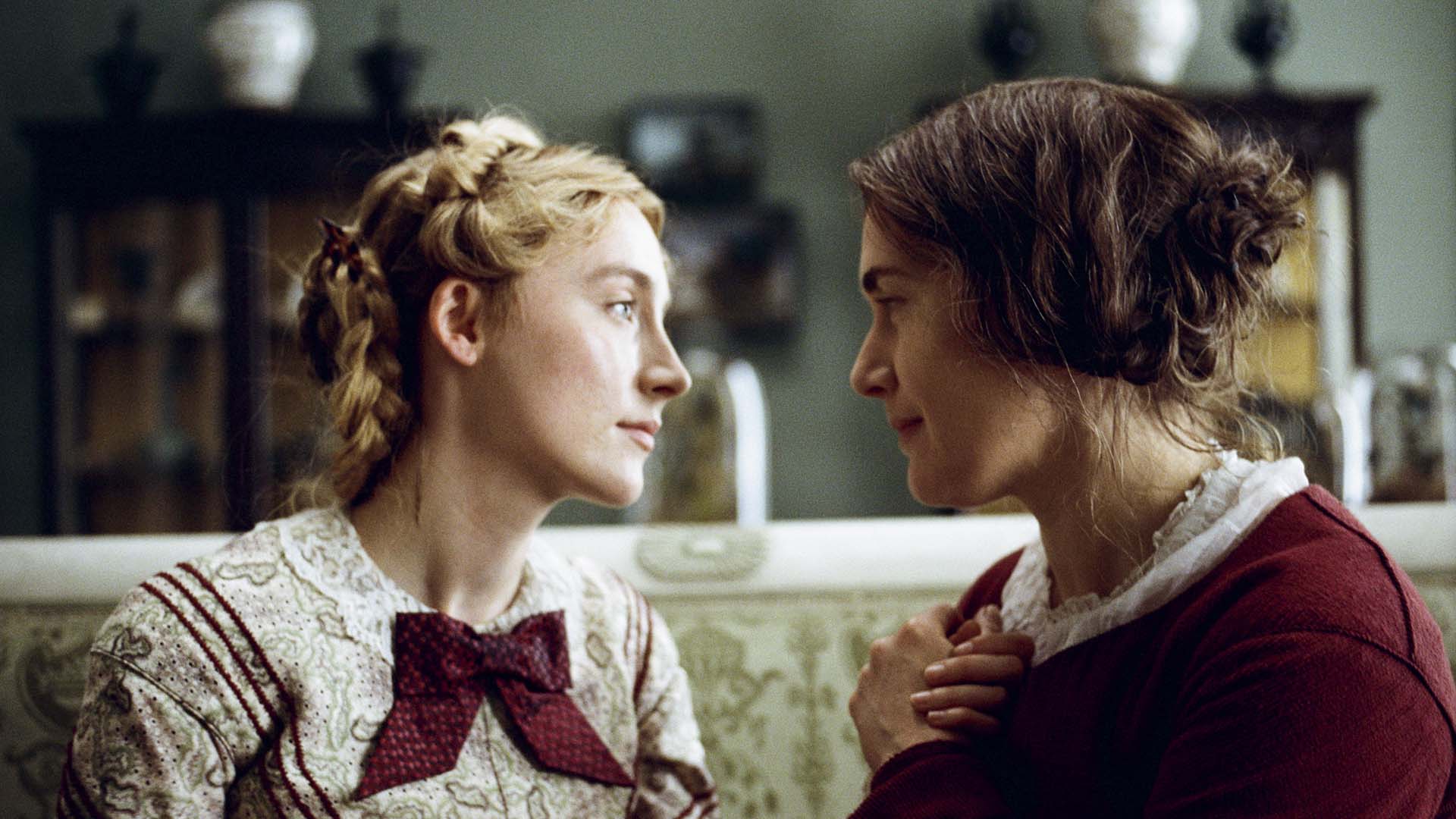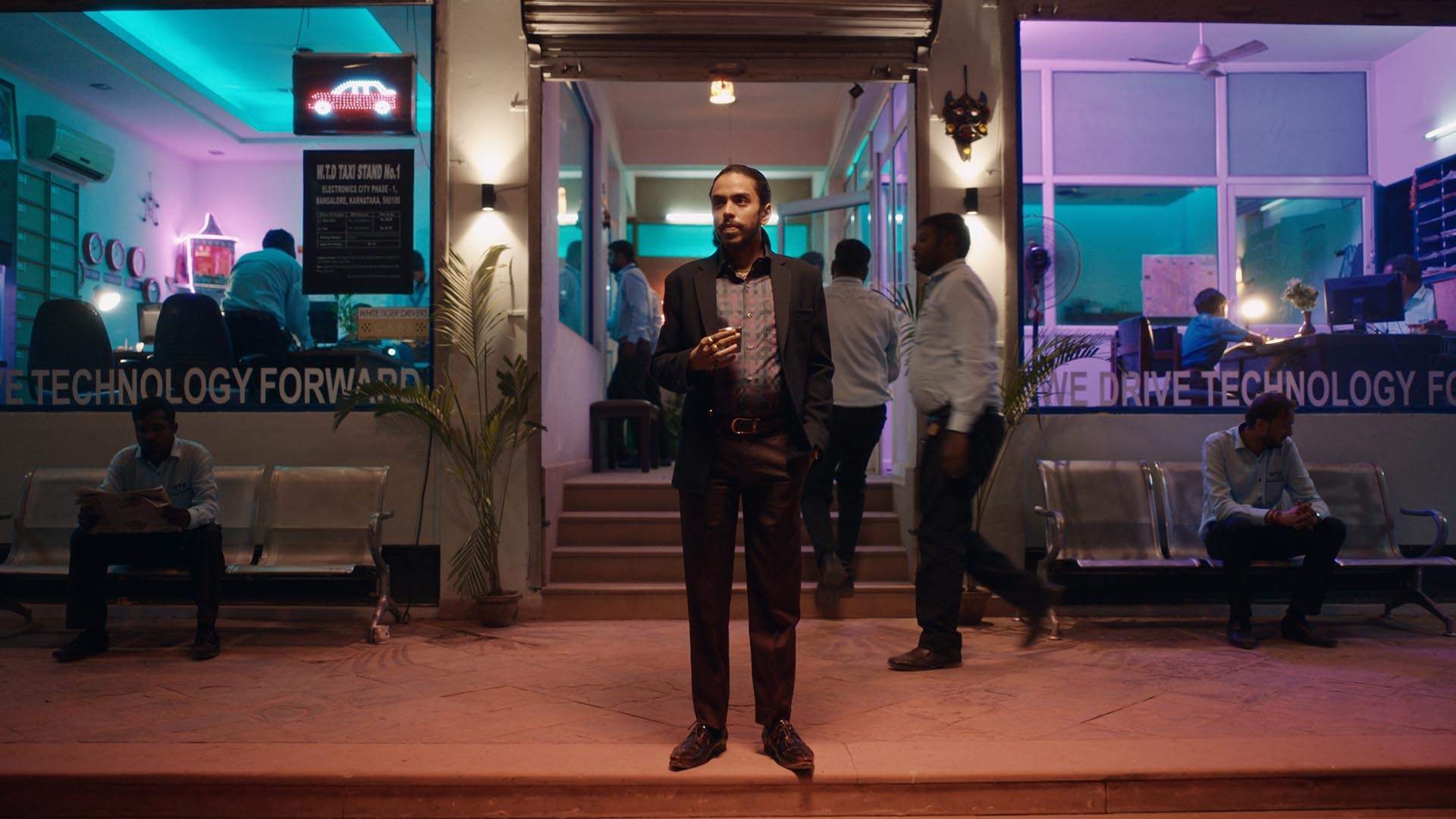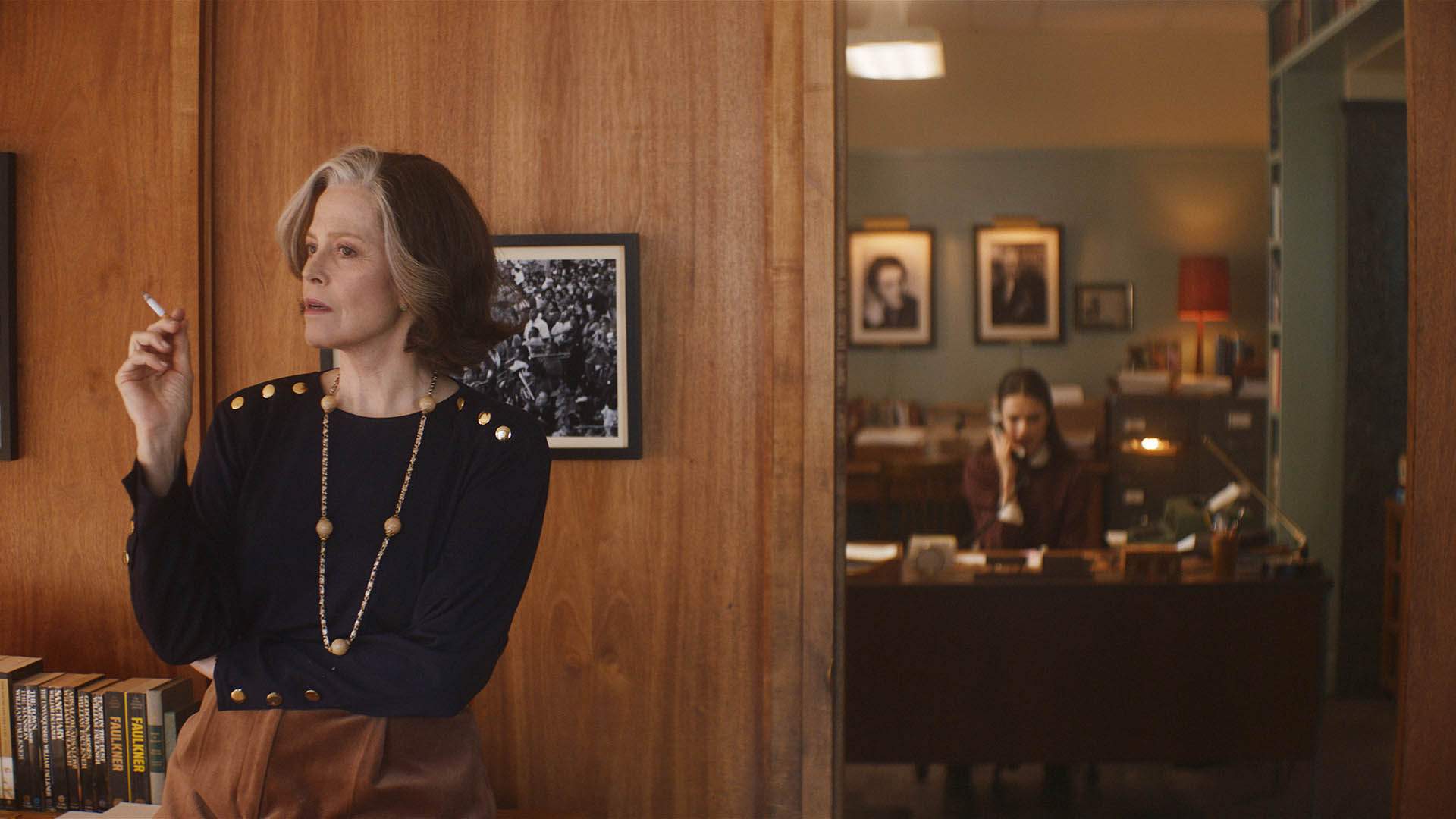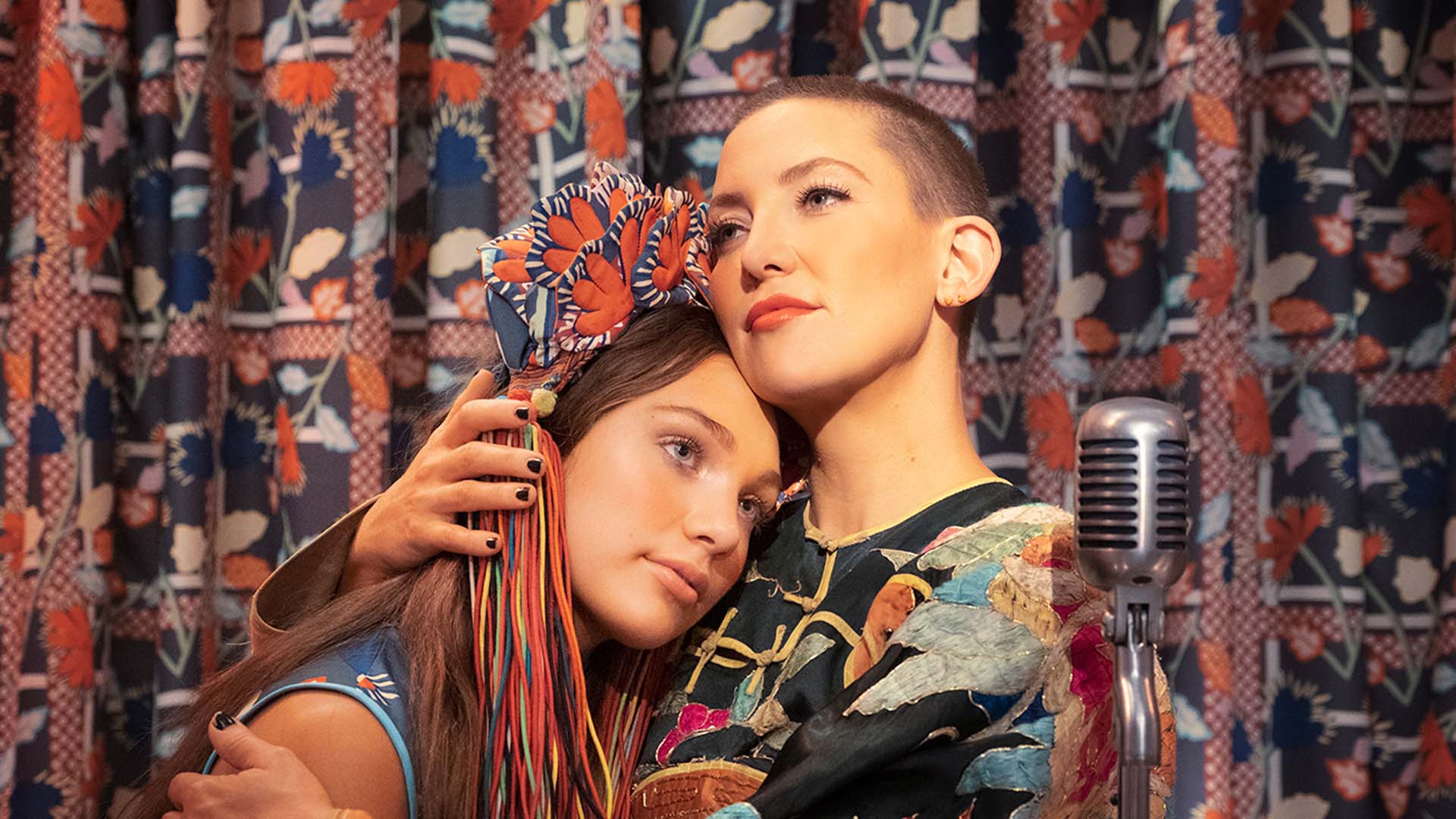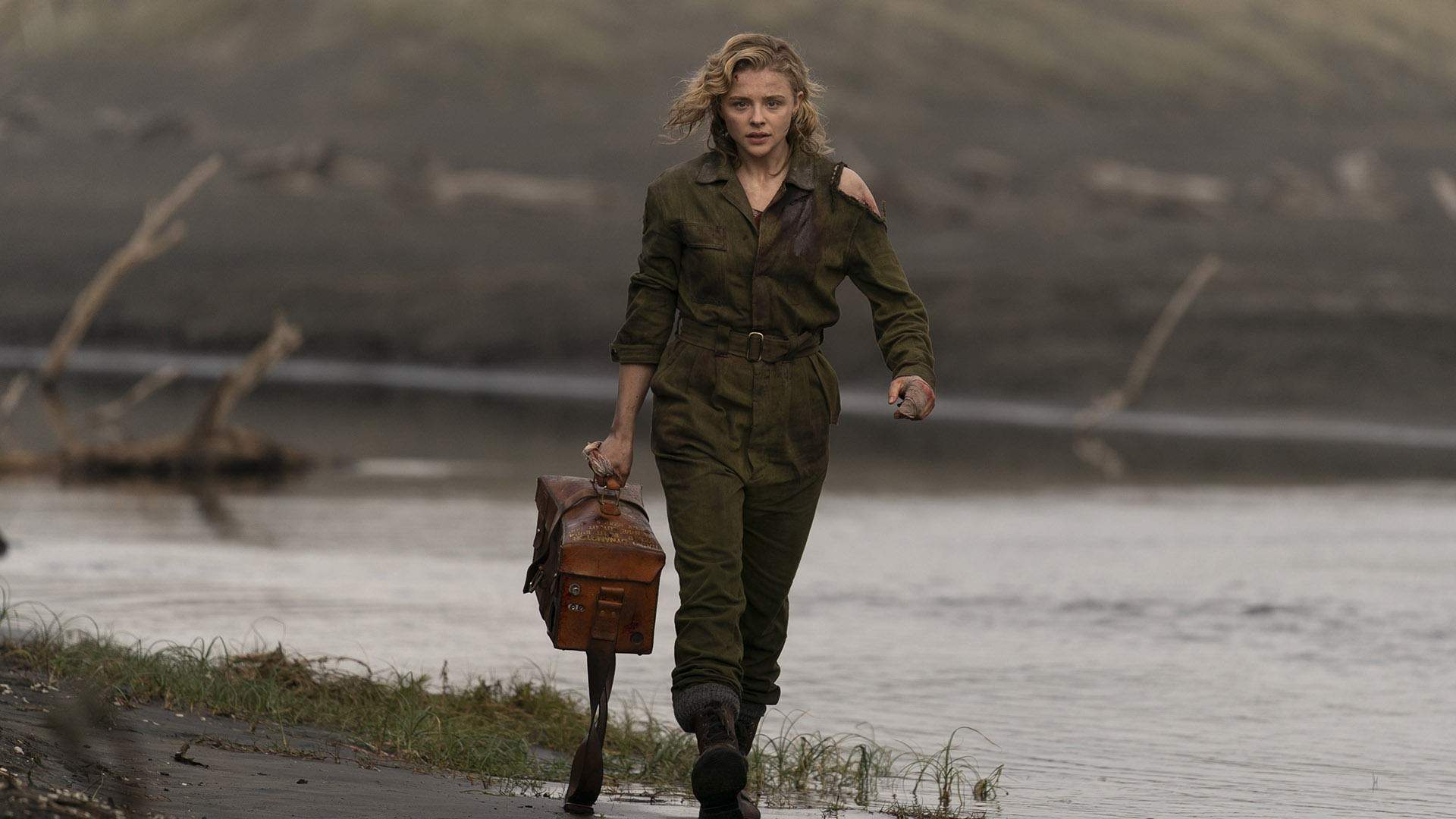The New Movies You Can Watch at Australian Cinemas From January 14
Head to the flicks to see a moving queer romance, a drama about an important archaeological find and the first movie directed by Sia.
Something delightful has been happening in cinemas across the country. After months spent empty, with projectors silent, theatres bare and the smell of popcorn fading, Australian picture palaces are back in business — spanning both big chains and smaller independent sites in Sydney, Melbourne and Brisbane.
During COVID-19 lockdowns, no one was short on things to watch, of course. In fact, you probably feel like you've streamed every movie ever made, including new releases, comedies, music documentaries, Studio Ghibli's animated fare and Nicolas Cage-starring flicks. But, even if you've spent all your time of late glued to your small screen, we're betting you just can't wait to sit in a darkened room and soak up the splendour of the bigger version. Thankfully, plenty of new films are hitting cinemas so that you can do just that — and we've rounded up, watched and reviewed everything on offer this week.

AMMONITE
Looking at an ammonite fossil is like putting your ear up to a seashell: in their ridged spirals, it feels as if a whole new world could exist. In the latter's case, each one is made from the remains of extinct molluscs from millions of years ago, and lingers now as a reminder of a different time and existence, its compact coils encasing all of its secrets. The striking specimens from the past provide the film Ammonite with its title, and with an obvious metaphor as well — but also an apt one that's brought to life with meticulous delicacy. In the second feature from God's Own Country writer/director Francis Lee, the two central characters in this patient yet always evocative 1840s-set romance are the product of centuries of convention and expectation, with society's engrained views about women both weathering away at them and solidifying their place. In a queer love story that once again arises organically in heightened circumstances, dives into a labour-intensive field with a resolute connection to the land, derives an elemental tenor from crucial locations, watches on tenderly as a new arrival upends the status quo and gifts two lonely souls a connection they wouldn't otherwise admit they yearned for, they're also as tightly wound as the historical remnants they tirelessly search for along the craggy, cliff-lined West Dorset coastline.
Lee's impeccably cast, exquisitely acted, solemnly beautiful and moving film isn't just the lesbian counterpart to its predecessor, though. While the movies complement each other perfectly, Ammonite unearths its own depths and boasts its own strengths. Lee has made the concerted decision not just to focus on two women, but to fictionalise the relationship between real-life scientists who find solace in each other as they're forced to fight to be seen as anything other than housewives. Living in Lyme Regis with her ailing mother (Gemma Jones, Rocketman), Mary Anning (Kate Winslet, Wonder Wheel) is no one's wife, and doesn't want to be — but, working in the male-dominated realm of palaeontology, she's accustomed to being treated differently to her peers. As a child, she found her first ammonite fossil, which is displayed in the British Museum. Now scraping by running a shop that sells smaller specimens to rich tourists, she hasn't stopped looking for other big discoveries since. When geologist Roderick Murchison (James McArdle, Mary, Queen of Scots) visits Mary's store, however, he's after her services in a different way. In a casual reminder of just how dismissively women are regarded, she's asked to take care of his melancholic wife Charlotte (Saoirse Ronan, Little Women) while he travels abroad for work. Roderick thinks it'll be good for Charlotte to learn from Mary, to get outside daily and to have a sense of purpose, but Mary only agrees for the money.
Read our full review.

THE DIG
When Ralph Fiennes first trundles across the screen in The Dig, then starts speaking in a thick Suffolk accent, he's in suitably surly mode, as he needs to be. But, playing forthright and hardworking excavator Basil Brown, the adaptable Official Secrets, Hail, Caesar!, Spectre and A Bigger Splash star also flirts with overstatement in his initial scenes. Thankfully, he settles into his role quickly — and this 1939-set drama about an immense real-life archaeological discovery finds its rhythm with him. Hired by Edith Pretty (Carey Mulligan, Promising Young Woman) to burrow into what appear to be centuries-old burial mounds on her sprawling estate, Basil doesn't unearth any old find. His kindly employer has always had a feeling about the small hills on her property, she tells him in one of their friendly, leisurely chats, and her instincts prove accurate, sparking national interest. Adapting the 2007 novel of the same name by John Preston, this graceful movie explores Basil's dig, Edith's fight to retain both recognition and the items buried deep in her soil, her increasing health woes, and the keen excitement of her primary school-aged son Robert (Archie Barnes, Patrick). It also follows the circus that kicks up when the British Museum's Charles Phillips (Ken Stott, The Mercy) insists on taking over, and the love triangle that arises between his married employees Stuart (Ben Chaplin, The Children Act) and Peggy Piggott (Lily James, Rebecca) and Edith's airforce-bound cousin Rory Lomax (Johnny Flynn, Emma).
Whether you already know the details or you're discovering them for the first time, The Dig tells an astonishing story — and while a mid-20th century archaeological dig mightn't sound like rich and riveting viewing, this fascinating feature proves that notion wrong. As well as its true tale, it benefits from two important decisions: the casting of Mulligan and Fiennes, and the involvement of Australian theatre director-turned-filmmaker Simon Stone. After the anger and raw energy of Promising Young Woman, Mulligan finds power in restraint here. Once Fiennes finds his knack as Basil, he's a source of stoic potency as well. Their scenes together rank among the movie's best, although, making his first movie since 2015's The Daughter, Stone ensures that even the most routine of moments is never dull. The Dig abounds with sun-dappled imagery of Suffolk fields, their green and yellow expanse being carved into one shovel at a time, but it's a gorgeously lensed film in every frame. Stone and cinematographer Mike Eley (who also worked on The White Crow, which was directed by Fiennes) rarely shoot anything within view in the expected manner, resulting in a movie that steps back into the past, chronicles an historical discovery, appears the handsome period part, yet also looks and feels fluid and lively as it ponders the reality that time comes for all things and people.
Read our full review.

MY SALINGER YEAR
Cinema's recent obsession with JD Salinger continues, with My Salinger Year joining 2013 documentary Salinger, 2015 drama Coming Through the Rye and 2017 biography Rebel in the Rye. The reclusive The Catcher in the Rye author famously wouldn't permit his acclaimed novel to be adapted for the big screen, and that absence has clearly made the filmmaking world's heart grow fonder in the years since his 2010 death — although, in this case, Joanna Rakoff's 2014 memoir was always bound to get the movie treatment. In 1995, fresh from studying English literature at college and newly arrived in New York to chase her dreams, the wide-eyed aspiring scribe (Margaret Qualley, Once Upon a Time in Hollywood) takes an assistant job at one of the city's oldest and most prestigious literary agencies. Landing the role requires lying about her own ambitions, telling her new boss, Margaret (Sigourney Weaver, Ghostbusters), that she isn't trying to become a writer herself. (That's one thing the seasoned agent won't abide; another: any new technology beyond typewriters and telephones.) Joanna soon finds an outlet for her talents, however, when she's asked to reply to Salinger's fan mail. She's advised to send a generic response to the author's aficionados, as has always been the agency's policy, but she's moved to both secretly read and pen personal responses to them instead.
French Canadian writer/director Philippe Falardeau's Monsieur Lazhar, from 2011, was one of that year's tender, touching and thoughtful standouts. But My Salinger Year, which opened 2020's Berlinale almost a year before reaching Australian cinemas, is far more perfunctory — making an interesting true story feel far more formulaic as it should. The filmmaker retains a gentle hand, fills his script with affection for the enthusiastic Joanna, and literally gives a voice to those who've been moved by exceptional literature, and yet the end result spins an adult coming-of-age story just pleasantly and affably enough, rather than strikes much of a lasting chord. It also feels slight while proving overstretched, making obvious statements about art and commerce, the past and the future, and the eternal struggle to maintain a personal-professional balance (with Salinger, or Jerry as Margaret calls him, weaved throughout each point). At the same vastly different junctures in their careers as the characters they play, Qualley and Weaver are the feature's obvious highlights, however. They're placed in a well-worn Devil Wears Prada-style relationship, but their back-and-forth provides the film with its spark (and, for Weaver fans, even recalls her Oscar-nominated supporting role in 1988 workplace comedy Working Girl).

THE WHITE TIGER
Adapted from Aravind Adiga's 2008 Man Booker Prize-winning debut novel, The White Tiger shares an animal metaphor in its name; however, it's another, about roosters and coops, that truly cuts to its core. Like poultry in a cage awaiting slaughter, India's poor are kept in their place as servants, explains protagonist Balram (Adarsh Gourav, Hostel Daze) in the pacy narration that drives the film. At the mercy of cruel and ruthless masters, they're well aware that they're being treated thoughtlessly at best. They watch on as others around them are stuck in compliant lives of drudgery, in fact. But, ever-dutiful, they're unwilling to break free or even defy their employers. That's the life that Balram is supposed to lead, and does for a time — after he ingratiates his way into a driver position for Ashok and Pinky (Bollywood star Rajkummar Rao and Baywatch's Priyanka Chopra Jonas), the American-educated son and New York-raised daughter-in-law of the rich landlord (Mahesh Manjrekar, Slumdog Millionaire) who owns his village and demands a third of all earnings from its residents. The White Tiger starts with a car accident outside Delhi involving Balram, Ashok and Pinky, then unfurls in flashbacks from a slick, unapologetic Balram in the future, so it's immediately apparent that he won't always be kowtowing to those considered above him in his country's strict caste system. It's also evident that his tale, as cheekily told via a letter penned to 2003–13 Chinese Premier Wen Jiabao, will take the audience on quite the wild journey.
The White Tiger's framing device is a little clumsy, and its overt, blackly comic observations about the wealthy taking advantage of everyone they consider below them aren't new — but this is still a savage, compelling and entertaining film with something smart to say and an engaging way of conveying its central message. Thanks to 2005's Man Push Cart, 2007's Chop Shop and 2015's 99 Homes, Iranian American writer/director Ramin Bahrani is no stranger to street-level stories about everyday folks trying to survive and thrive under capitalism's boot, or to the twisted power dynamics that can ensue in society at large and in close quarters. Accordingly, he's a perfect fit for the material here, and brings a constantly probing eye to the narrative penned by his college classmate Adiga. Also ideal is Gourav. The actor is in excellent company, with Rao and Chopra Jonas each finding multiple layers in their characters' lives of privilege and eagerness to regard Balram as a friend while it suits. But as a bright-eyed but still calculating young man trying to work his way up in the world, and then as a cynical experienced hand who has seen much, endured more and knows how he wants the world to work, Gourav is electrifying. It's a performance that's bound to catapult him into other high-profile roles, and it's also the likeable and empathetic yet also ambitious and slippery portrayal this rollercoaster ride of a story hinges upon.
Read our full review.

MUSIC
Sia isn't the first musician to try her hand at filmmaking. Music is barely a movie, however. As co-penned with children's author Dallas Clayton, the scantest of cliche-riddled, Rain Man-esque narratives is used to stitch together ten whimsy-dripping musical numbers — packaged as brightly coloured and costumed insights into the unique way in which the film's titular character sees the world, but really just lavish music videos to new Sia-penned songs performed by the feature's cast. And, awash in rainbow hues, surrealistic outfits and jerky, stylised dance moves, these frequent video clips are actually the most subtle parts of the movie. Sia's regular dancer and muse Maddie Ziegler jumps from the singer/songwriter's 'Chandelier' and 'Elastic Heart' videos to play Music, a nonverbal teenager on the autism spectrum, with such pronounced mannerisms that her performances feels like a caricature from her first wide-eyed stare. As the girl's just-sober, on-probation, much-older half-sister Zu (and acting in her first screen role since 2017), Kate Hudson stamps around with a shaved head that's supposed to signify the character's alternative credentials — and, as her character scowls about her new responsibilities to her sibling, drops phrases such as "people pound" and flits around town dealing drugs to fund her dream of starting a yoga commune, she's just as forceful.
Music starts with its headphone-wearing namesake's daily routine, which has been carefully established by her grandmother Millie (Mary Kay Place, The Prom), and is maintained with help from the kindly local community. But then tragedy strikes, Zu is called in to look after Music, and she quickly establishes that she knows far less about what she's doing and about her sister than Millie's doting neighbours, such as boxing teacher Ebo (Leslie Odom Jr, a Tony-winner for Hamilton) and building mainstay George (Hector Elizondo, one of Hudson's co-stars in 2016's also abysmal Mother's Day). The movie might bear Music's name, but it tells Zu's story. Controversy swelled around the film when its first trailer dropped in 2020, with Sia called out for the fact that the neurotypical Ziegler isn't from the autistic community — and it shouldn't come as much of a surprise that the first-time feature director happily uses Music as a catalyst to spark Zu's growth, rather than as the movie's actual protagonist. Zu's journey involves learning not to resent her sibling or dump her on others (something that should be self-evident) and falling for Ebo, while Music becomes little more than her sidekick. By the time that Sia shows up, playing a version of herself and purchasing pills from Zu to send to Haiti as an act of charity, Music has already outstayed its welcome; however, her brief on-screen appearance hammers home not just the film's indulgence, but the fact that the movie is really just an advertisement for a concept album above all else.

SHADOW IN THE CLOUD
In Shadow in the Cloud, a passenger on a plane spies a gremlin peering at them from outside the aircraft — and science fiction fans will know that in 1963 with William Shatner, in 1983 with John Lithgow and in 2019 with Adam Scott, The Twilight Zone got there first. The second of those instances, in Twilight Zone: The Movie, was produced by filmmaker John Landis. In what's hardly a coincidence, the script for Shadow in the Cloud is co-credited to Landis' controversial son Max (Chronicle, American Ultra). Plenty of details have been changed here, with the second feature from director and co-writer Roseanne Liang (My Wedding and Other Secrets) set in 1943, primarily taking place on a B-17 bomber from Auckland to Samoa and focusing on Flight Officer Maude Garrett (Chloë Grace Moretz, Greta). From the outset, the film also endeavours to draw attention to gender politics. After its airborne scenes, it gets gleefully absurd, too. Still, after some initial intrigue, Shadow in the Cloud kicks into gear with a been-there, seen-that air that can't be shaken, even as the movie tries to fly into over-the-top B-movie territory. It doesn't help that, while endeavouring to mixing feminist sentiments with gonzo genre flourishes, it spends far too much time letting men voice their utter surprise that a woman could be caught up in this narrative.
Those comments echo as Maude sits in the ball turret hanging beneath the aircraft. She's hitching a ride with an all-male crew (including The Outpost's Taylor John Smith, Hawaii Five-O's Beulah Koale, Love, Simon's Nick Robinson, Operation Buffalo's Benedict Wall and Avengers: Endgame's Callan Mulvey) for a secret mission that she isn't allowed to let them in on, and they're none too happy about the situation. So, that's the only space they're willing to give her. They're content to chatter away obnoxiously about her, though, and to dismiss her worries as hysterics when she spies a critter wreaking havoc outside. This part of the picture is enough to give viewers whiplash. In the tension-dripping creature-feature tradition, and as a Twilight Zone remake, Maude's experiences during the flight are the film's best. If her anxiety-riddled time with the gremlin had been stretched out to movie-length and packaged with example after example of how society overlooks women, they could've had real bite, too. And yet, the way the movie's sexist dialogue is used to make a girl-power point proves near-excruciatingly clunky and cliched, rather than clever or meaningful. Imbalance plagues the film over and over, actually — as evidenced in the 80s-style synth score that sounds great but doesn't quite fit, its constant tonal shifts, Moretz's performance, and the overall feeling that the movie thinks it has nailed the combination of out-there and astute.
If you're wondering what else is currently screening in cinemas — or has been lately — check out our rundown of new films released in Australia on July 2, July 9, July 16, July 23 and July 30; August 6, August 13, August 20 and August 27; September 3, September 10, September 17 and September 24; October 1, October 8, October 15, October 22 and October 29; and November 5, November 12, November 19 and November 26; and December 3, December 10, December 17, December 26; and January 1 and January 7.
You can also read our full reviews of a heap of recent movies, such as The Personal History of David Copperfield, Waves, The King of Staten Island, Babyteeth, Deerskin, Peninsula, Tenet, Les Misérables, The New Mutants, Bill & Ted Face the Music, The Translators, An American Pickle, The High Note, On the Rocks, The Trial of the Chicago 7, Antebellum, Miss Juneteenth, Savage, I Am Greta, Rebecca, Kajillionaire, Baby Done, Corpus Christi, Never Rarely Sometimes Always, The Craft: Legacy, Radioactive, Brazen Hussies, Freaky, Mank, Monsoon, Ellie and Abbie (and Ellie's Dead Aunt), American Utopia, Possessor, Misbehaviour, Happiest Season, The Prom, Sound of Metal, The Witches, The Midnight Sky, The Furnace, Wonder Woman 1984, Ottolenghi and the Cakes of Versailles, Nomadland, Pieces of a Woman, The Dry, Promising Young Woman and Summerland.
